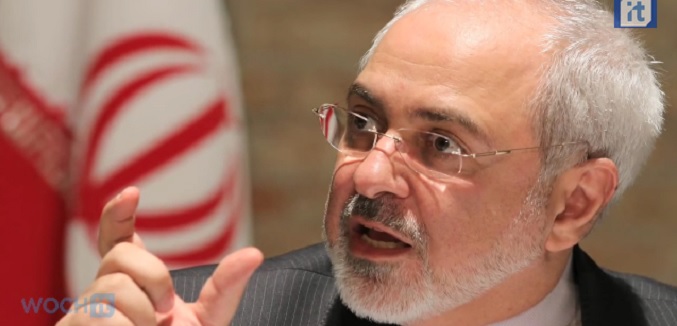Al Arabiya on Monday (link in Arabic) cataloged a series of concessions that the Obama administration is rumored to have made to Iran as negotiations approach the upcoming November 24 deadline, a week after The New York Times reported on plans by President Barack Obama to “do everything in his power to avoid letting Congress vote on “a nuclear deal that many lawmakers have publicly worried will be inadequate to prevent Iran from acquiring nuclear weapons.
The pan-Arab outlet suggested that lawmakers were particularly unnerved by reports of fundamental concessions across all core areas up for negotiations, including: that the U.S. has dropped its demand that Iran close its underground military enrichment facility at Fordow, that the U.S. has accepted Iran’s characterization of its enrichment rights regarding uranium, that the U.S. will permit Iran to operate the plutonium-producing reactor at Arak, and that the U.S. has delinked Iran’s ballistic missile program from the rest of its nuclear program.
Iranian leaders had demanded that the West cave on those issues, which they publicly described as red lines for the regime. The Washington Post on Sunday quoted Mark Dubowitz – executive director of the Foundation for Defense of Democracies – worrying that further concessions were coming down the pike:
“Iran may not be willing to take ‘backward steps’ but one shouldn’t discount the possibility that there are cascade of US concessions before Nov. 24 that concede to Iran a higher starting enrichment cap than currently on the table followed by multi-phased and escalating enrichment capacity over a period of time, says Mark Dubowitz of the Foundation for Defense of Democracies. “This technical compromise may permit the Iranians to argue that they haven’t taken any steps backward since they have increased their latent enrichment capacity while the administration argues that it will take Iran some years to get back their actual enrichment levels to where they are today.”
Congressional legislation, alongside half a dozen binding United Nations Security Council resolutions, has long called for a full halt to Iran’s uranium, plutonium, and ballistic missile activities. Bipartisan letters from the House and Senate – signed respectively by 394 members and 83 Senators – were sent to the administration last March demanding that Iran be forced to dismantle its centrifuge infrastructure under any comprehensive deal. Bipartisan majorities in Congress had beforehand sought to pass legislation signaling future financial pressure on Iran should negotiations fail, with an eye toward providing additional leverage to U.S. negotiators. They had been stymied by a White House campaign that included heated language implying that those lawmakers were warmongers.
Obama administration figures had meanwhile issued public assurances that U.S. diplomats had sufficient leverage to extract robust concessions from the Iranians:
“They know that if they fail, sanctions will be increased,” Kerry said of Iran. “We’ve said it a hundred times and you all have said it a hundred times and they know you’re yearning to go do it but you don’t need to do it. It is actually gratuitous in the context of this situation because you can do it in a week if you need to when we say, ‘this ain’t working, we need your help,’ and believe me we’ll be prepared to do that.”
Subsequent developments broadly confirmed the concerns of skeptics, who argued that the sanctions relief provided by the interim Joint Plan of Action (JPA) would leave Western negotiators without the leverage they were counting on to alter Iranian calculations. News that the administration will now seek to freeze out Congress generated harsh responses from Senators from both parties, from top Democrats in the House, and from the GOP leadership.
[Photo: WochitGeneralNews / YouTube]




